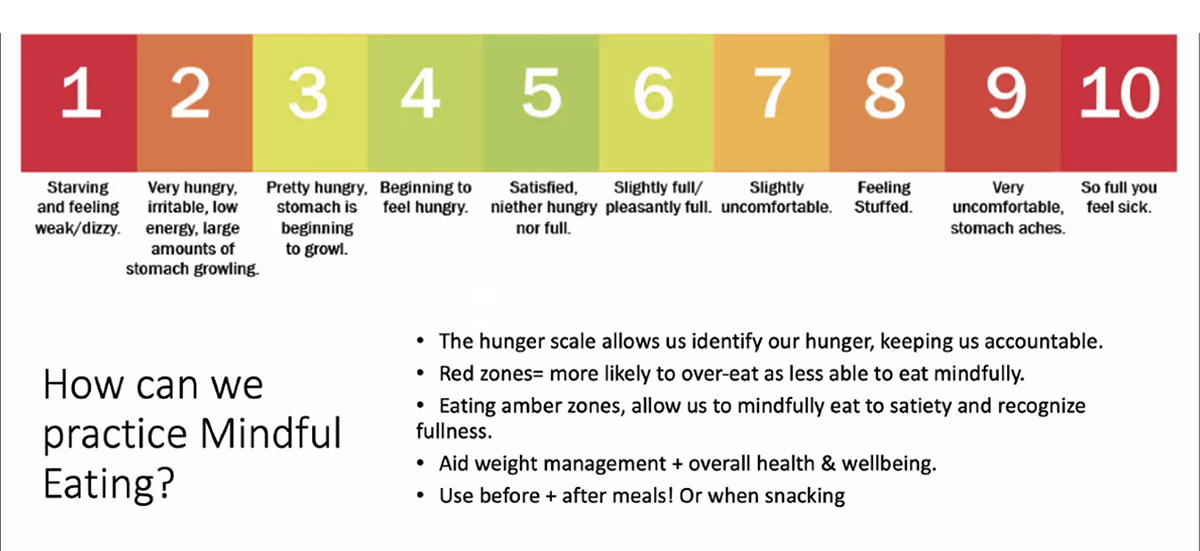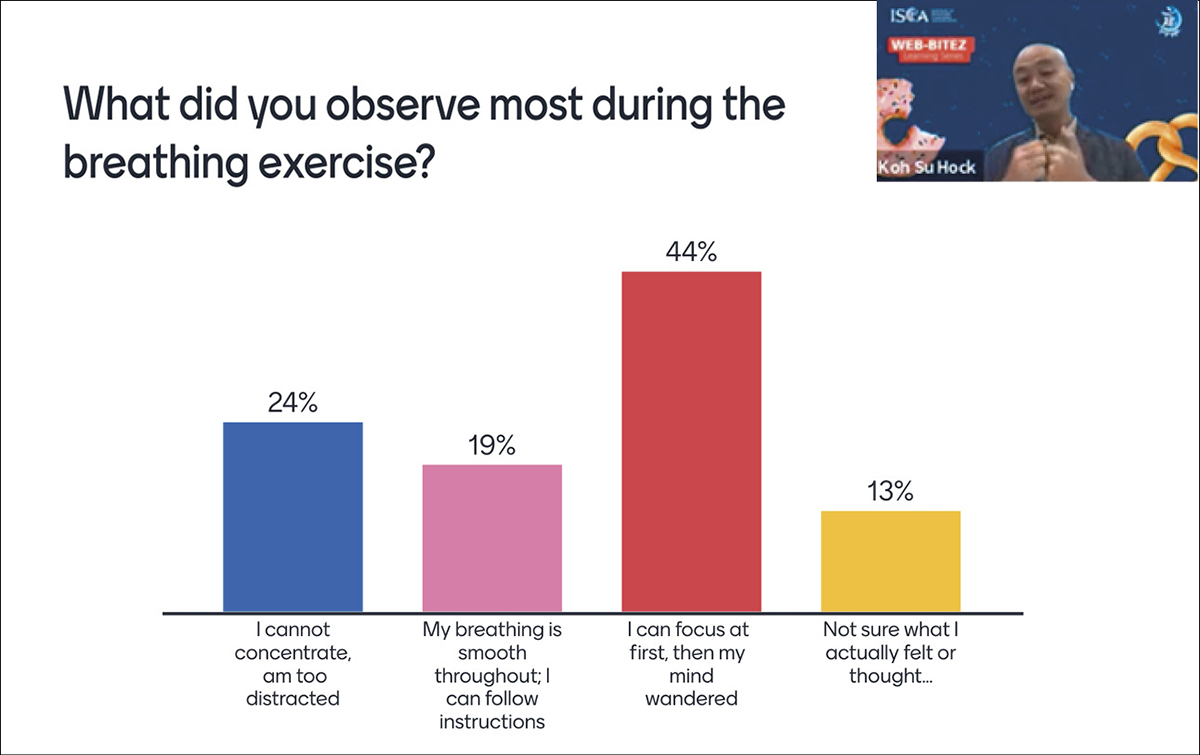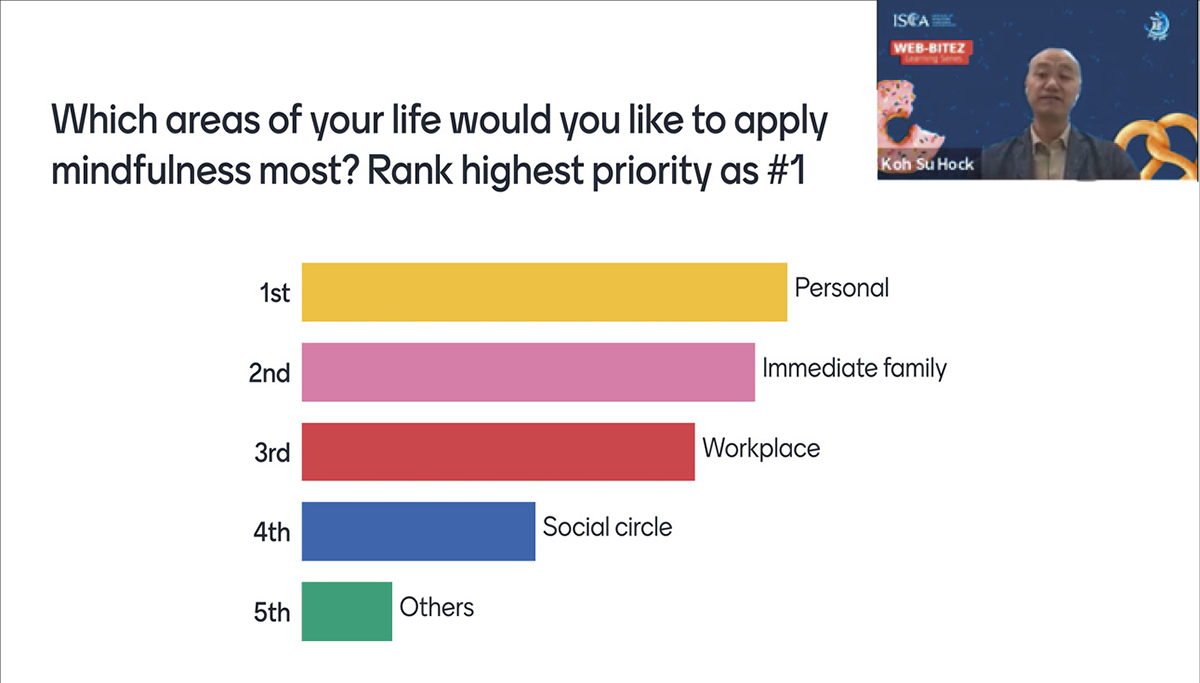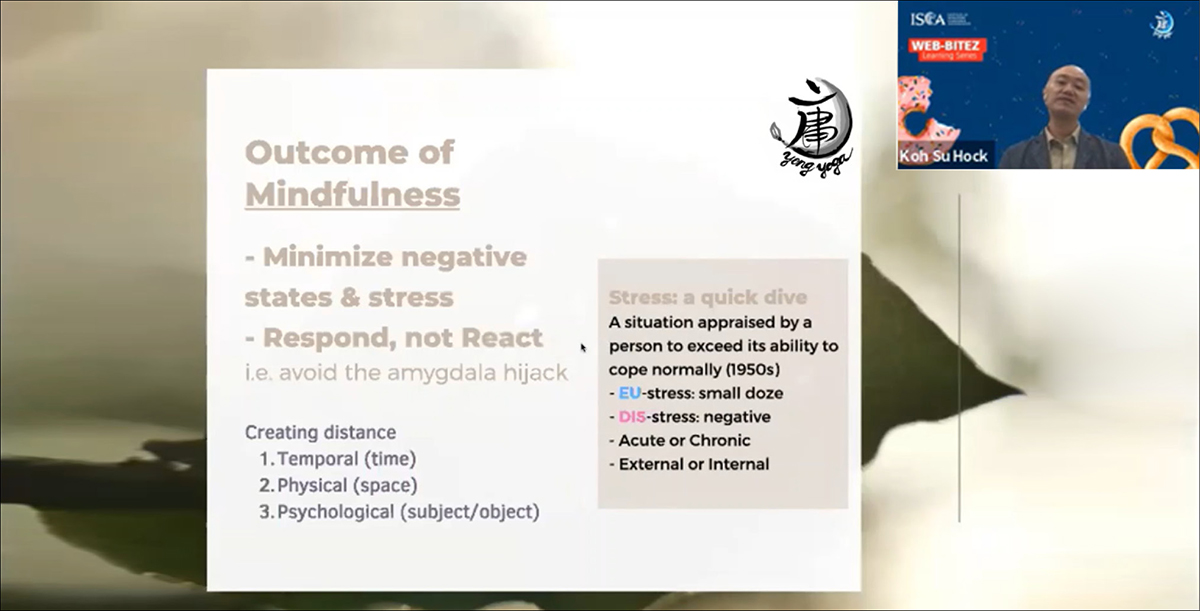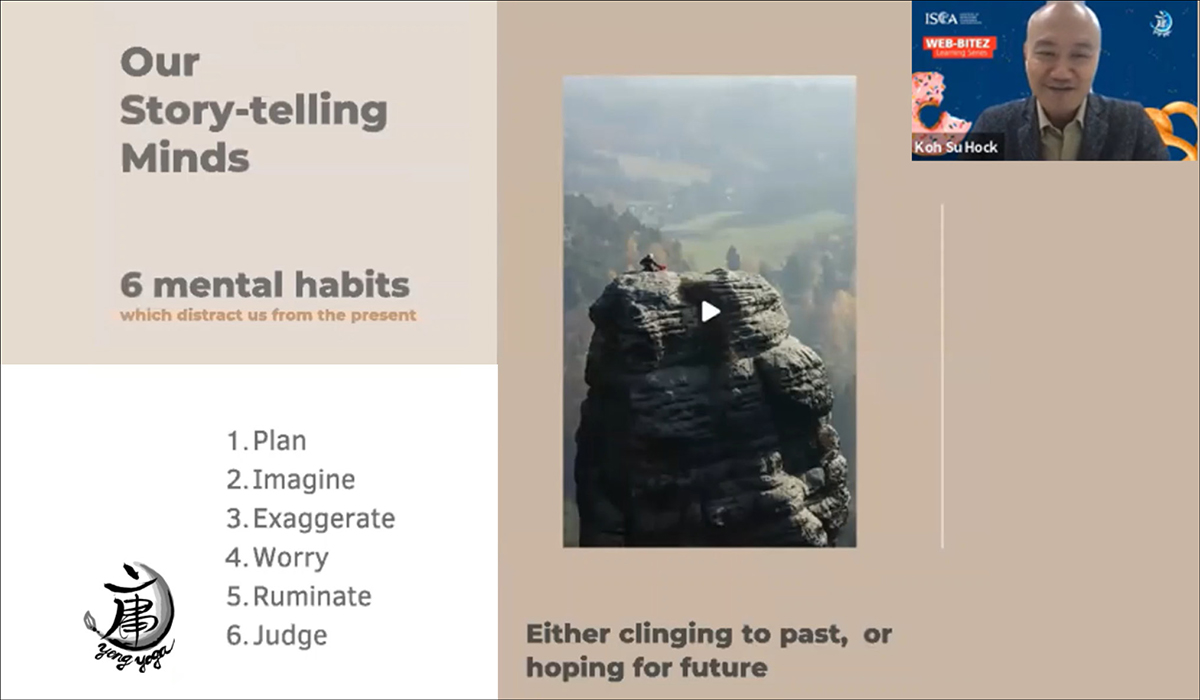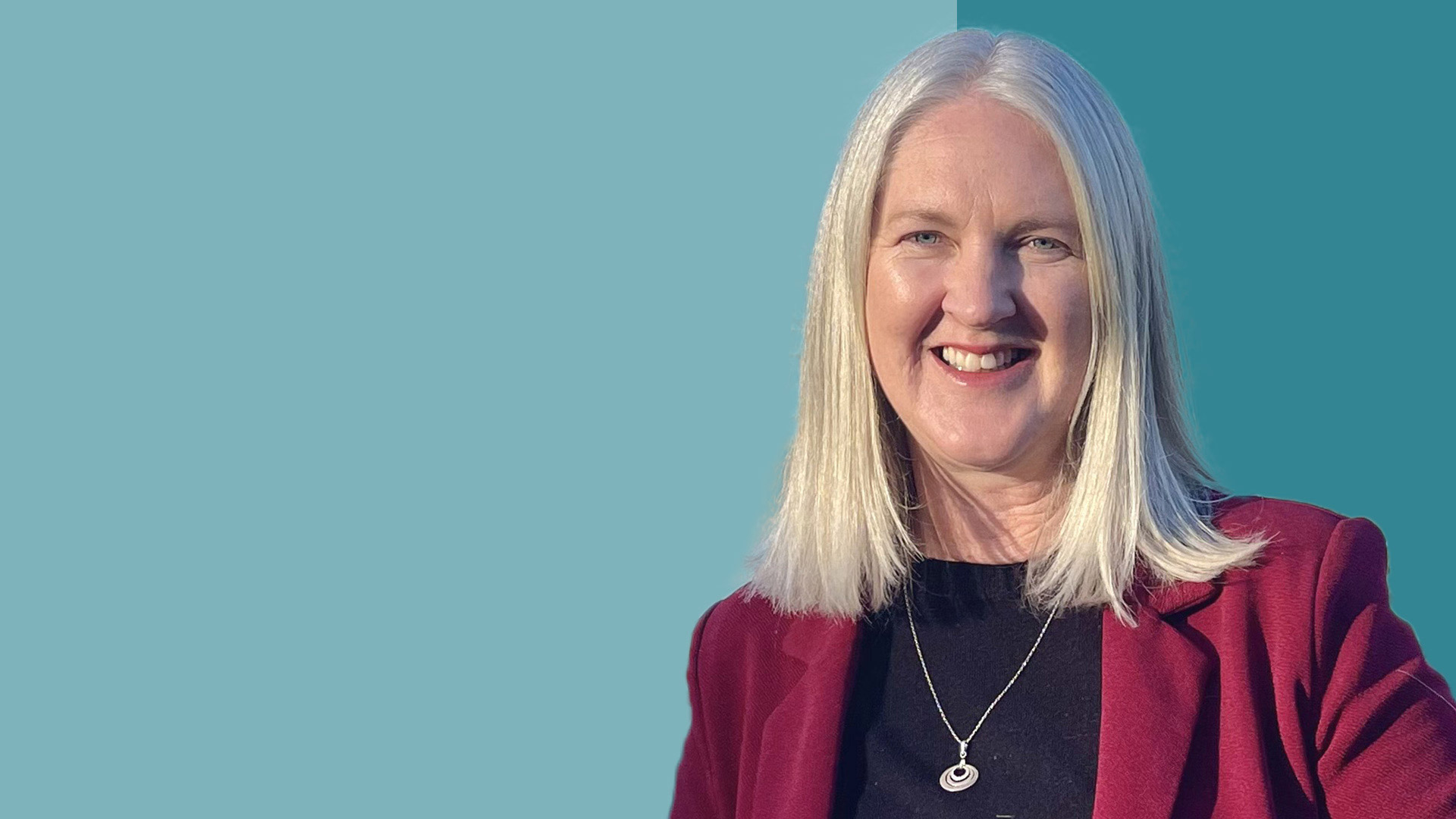Enhancing Mental Wellbeing
BY VIOLET KOH
TAKEAWAYS
- Accountants are often identified as having high stress levels.
- Mindful eating can help optimise health and wellbeing.
- Webinar participants want to apply mindfulness in three priority areas: personal, immediate family and workplace.
- Scientific concept of mindfulness is to observe and just watch, without passing judgement.
Professionals lead increasingly stressful and hectic lives, juggling a myriad of commitments and responsibilities in their respective capacities as an employer or employee, a parent, child, and so on. With the growing pace of change brought about by the shorter economic cycles, advancement in technology and drastic climate shifts etc, professionals have to also ensure that they constantly upgrade their skills to align with prevailing mega trends in order to sustain their livelihoods. There are other stress triggers, such as those caused by inflationary pressures on the economy.
Accountants are among a group of professionals, managers and executives (PMEs) who are often identified as having high stress levels. These are caused by a mix of factors including tight reporting deadlines and a shortage of manpower, which result in long working hours. According to an annual study conducted by tech company Kisi, the Global Work-Life Balance Index 2021 revealed Singapore to be the second most overworked city in the world (Figure 1), standing just a few percentage points behind Hong Kong in the top spot. Based on the same study, the country’s ranking for work-life balance was at number 18. As a whole, the index considered four key factors, namely, work intensity, society and institutions, city liveability, and COVID-19.
Figure 1 Top Overworked Cities in the Ranking



